Dr Sian Prior discusses IMO Arctic HFO ban on BBC Newshour, 20 November 2020
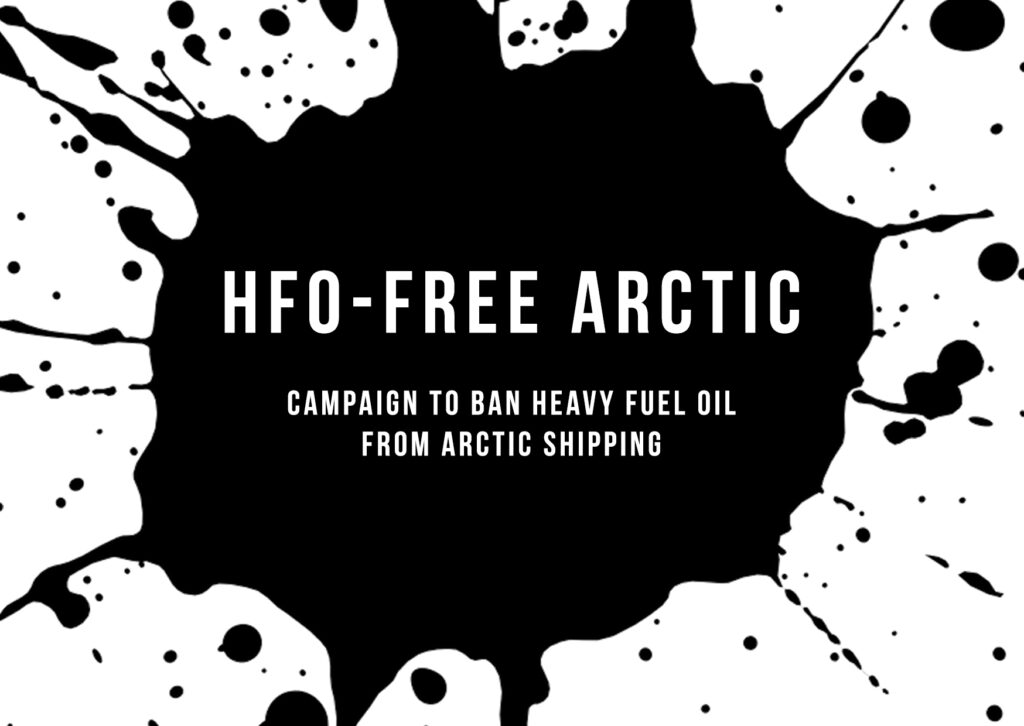
Dr Sian Prior, Lead Advisor to the Clean Arctic Alliance, speaks to Julian Marshall from BBC World on Newshour, 20 November 2020, about why the CAA believes the new International Maritime Organization ban on use and carriage of heavy fuel oil in the Arctic is a “missed opportunity”.
Arctic Heavy Fuel Oil Ban: IMO and Arctic States Slammed for Endorsing Continued Arctic Pollution
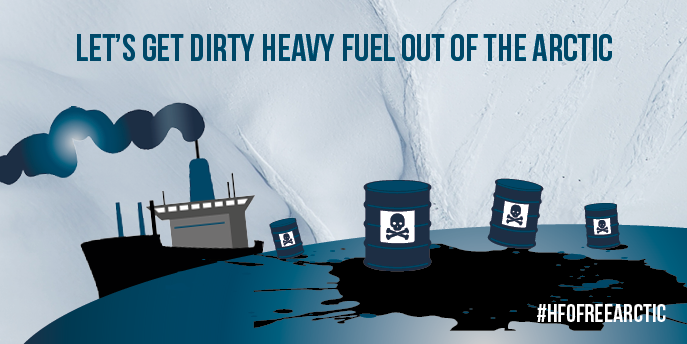
The Clean Arctic Alliance today slammed the decision by the International Maritime Organization (IMO) to approve a ban ridden with of loopholes on the use and carriage of heavy fuel oil in the Arctic (HFO), saying that it would leave the Arctic, its Indigenous communities and its wildlife facing the risk of a HFO spill for another decade.
Проект Регламента Международной морской организации (ИМО) по флотскому мазуту для арктических районов: запрет только на словах?
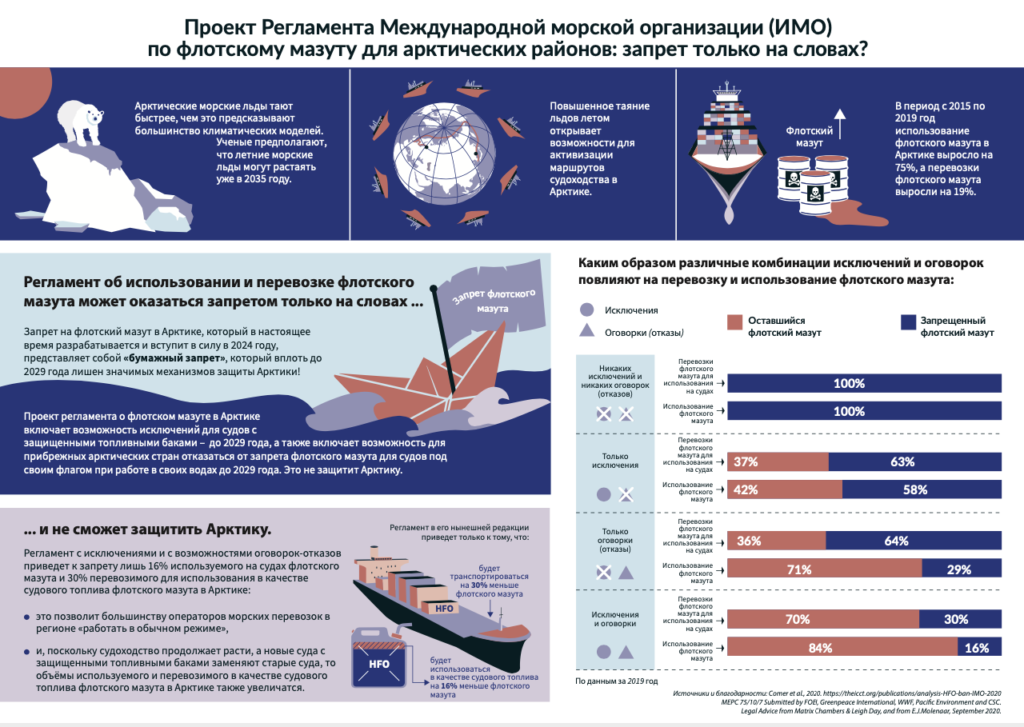
Проект Регламента Международной морской организации (ИМО) по флотскому мазуту для арктических районов: запрет только на словах? Проект Регламента Международной морской организации (ИМО) по флотскому мазуту для арктических районов: запрет только на словах? Запрет на флотский мазут в Арктике, который в настоящее время разрабатывается и вступит в силу в 2024 году, представляет собой «бумажный запрет», […]
Infographic: Heavy Fuel Oil Spills – Case Studies of a Global Problem
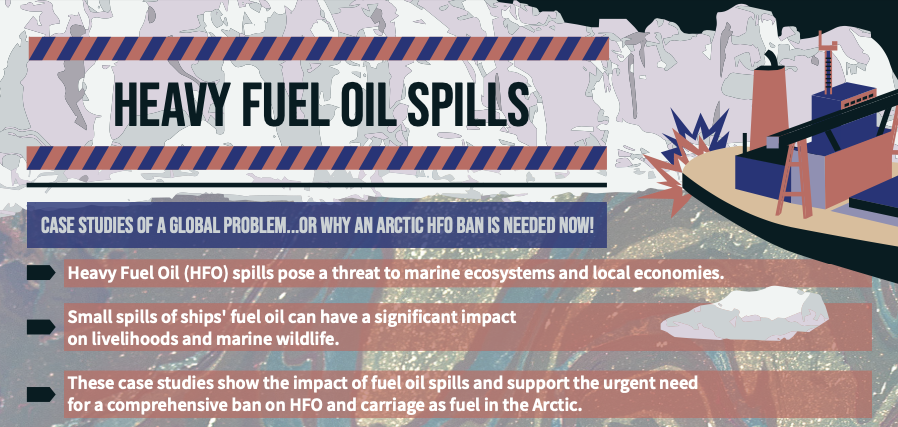
Infographic: Heavy Fuel Oil Spills – Case Studies of a Global Problem
NGOs Urge IMO To Rethink Weak HFO Ban, Demand Stronger Arctic Protection
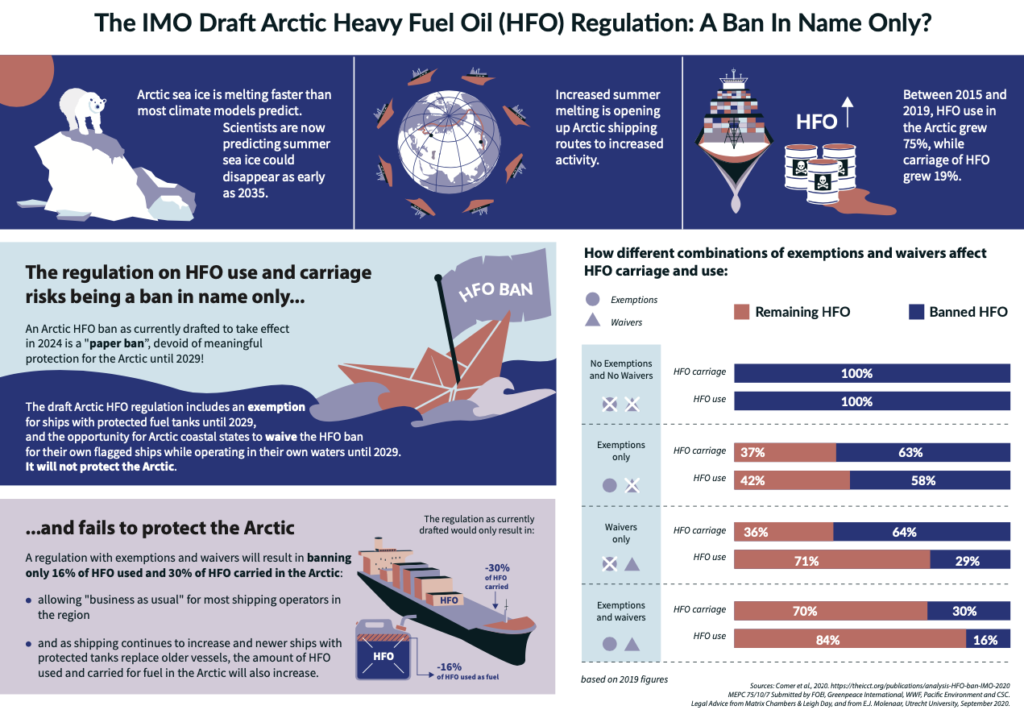
As the first virtual meeting of the International Maritime Organization’s Marine Environment Protection Committee (IMO, MEPC 75) opens today, the Clean Arctic Alliance implored member states to amend and improve its draft ban on the use and carriage of heavy fuel oil (HFO) in the Arctic or risk implementing a “paper ban” – a weak regulation that will leave the Arctic exposed to a greater risk of oil spills and black carbon pollution from HFO in the future, as shipping in the region increases.
Why the IMO’s draft Arctic HFO regulation will not protect the Arctic, and how to fix it

Dr Sian Prior on the problems with the International Maritime Organization’s ban on heavy fuel oil in the Arctic – and how it can be rectified.
MEPC75 Webinar: Why the IMO’s draft Arctic HFO regulation will not protect the Arctic, and how to fix it
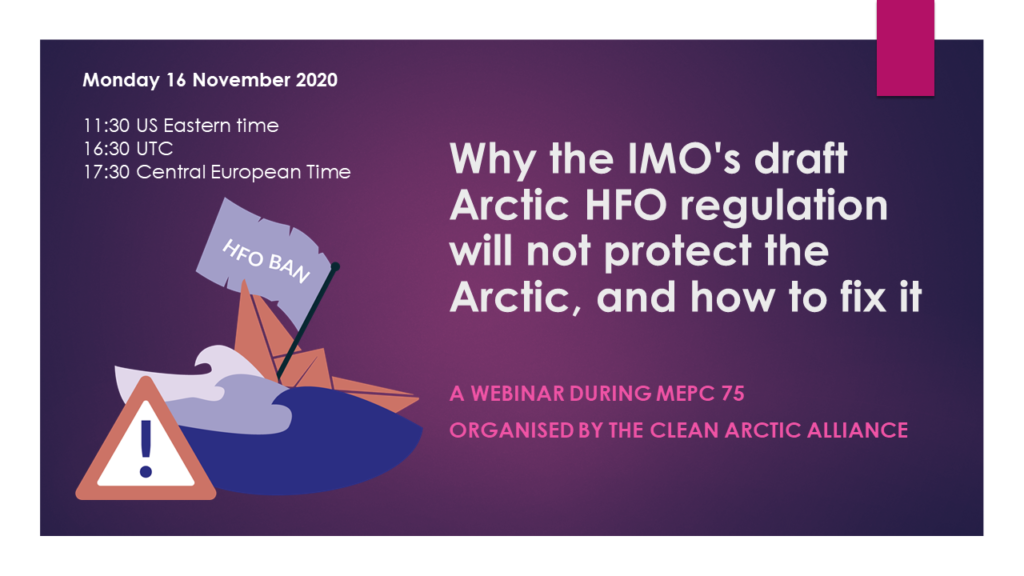
The Clean Arctic Alliance would like to invite you to an online event to present the reality and limitations of the draft Arctic HFO regulation prohibiting the use and carriage as fuel of HFO by ships in the Arctic, and why it is not fit for purpose and should be amended ahead of approval at the 75th session of the Marine Environment Protection Committee.
Infographic: The IMO Draft Arctic Heavy Fuel Oil (HFO) Regulation: A Ban In Name Only?

The IMO’s draft ban on heavy fuel in the Arctic risks being a “paper ban” devoid of meaningful protection of the Arctic.
Reaction to Norway’s Proposal for Arctic Ban on Polluting Heavy Fuel Oil in Svalbard

“We welcome this important commitment by Norway to protect the waters around Svalbard from the risks of heavy fuel oil (HFO) spills, and its glaciers and sea ice from the impacts of black carbon emissions caused by the burning of HFO. Norway leads the way amongst Arctic nations in getting rid of HFO from Arctic waters, and is demonstrating international leadership by going above and beyond the weak ambitions of Arctic HFO ban currently being considered by the International Maritime Organization.”
Манифест Альянса «За чистую Арктику» в связи с председательством России в Арктическом совете октябрь 2020

Во время двухлетнего председательства Российской Федерации в Арктическом совете Альянс «За чистую Арктику» призывает Россию сосредоточить внимание на устойчивом использовании пространства Арктики, уделяя особое внимание новым мерам по смягчению воздействий арктического судоходства, которые позволят минимизировать выбросы, снизить риски разливов нефти и устранить шумовые загрязнения.

